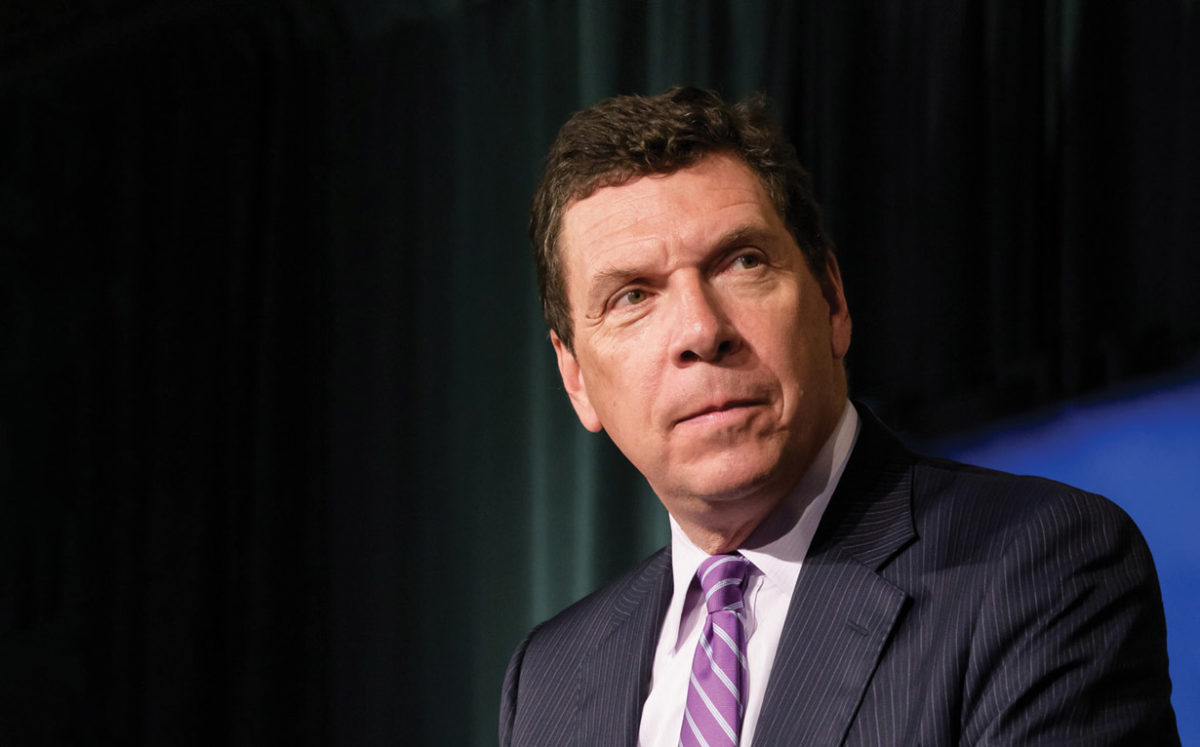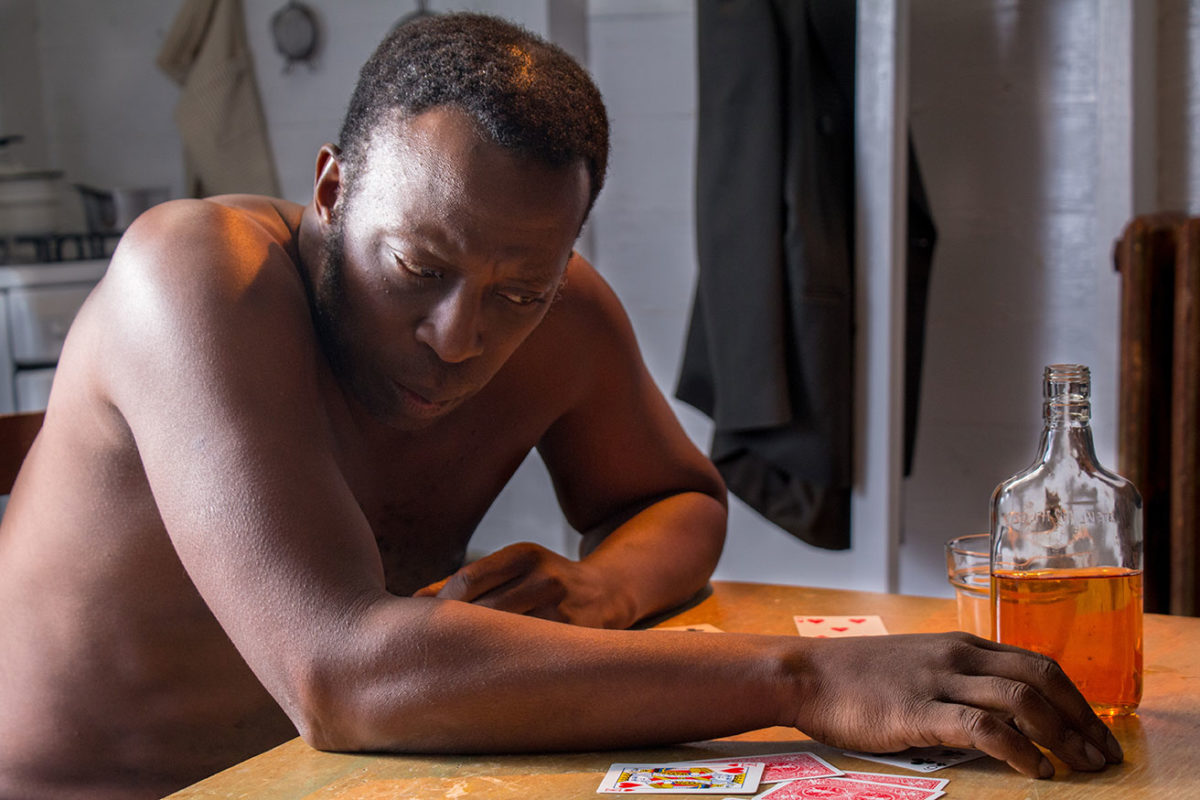This is a limited series of Q&A”™s by Fairfield County Business Journal Bureau Chief Kevin Zimmerman with leaders in various business sectors and industries. It is designed to illustrate how they”™re navigating the COVID-19 era, what past experiences they”™ve drawn upon, and suggestions they have for those planning for a career in leadership.
 Our first subject is Dr. John Murphy, president and CEO of Nuvance Health, the hospital system whose members are Northern Dutchess Hospital, Putnam hospital Center and Vassar Brothers Medical Center in New York and include Danbury, New Milford, Norwalk and Sharon Hospitals in Connecticut. Nuvance”™s staff members have been on the frontlines since diagnosing on March 6 Connecticut”™s first coronavirus-positive patient at Danbury Hospital ”” who, since released, is also an employee at that facility and Norwalk Hospital.
Our first subject is Dr. John Murphy, president and CEO of Nuvance Health, the hospital system whose members are Northern Dutchess Hospital, Putnam hospital Center and Vassar Brothers Medical Center in New York and include Danbury, New Milford, Norwalk and Sharon Hospitals in Connecticut. Nuvance”™s staff members have been on the frontlines since diagnosing on March 6 Connecticut”™s first coronavirus-positive patient at Danbury Hospital ”” who, since released, is also an employee at that facility and Norwalk Hospital.
How is the present situation at Nuvance?
“We”™re in pretty good shape with ventilators. We have access through New York and Connecticut to the securing of ventilators from the national stockpile, and we recently received about 40 for each state. So right now we have plenty, but I say that cautiously. My biggest fear was that we may run out of ventilators.
“As far as masks, we are scouring the globe for N95s and surgical masks. They”™re coming in in dribs and drabs. We”™re using about 10,000 a day ”” the burn rate is pretty significant. For the past five or six days (as of April 15), our rate of admissions has been slowing, but it hasn”™t flattened yet. And like everyone else, we want to increase the number of tests we”™re able to conduct.”
What does it mean to be “a leader” during this crisis?
“It”™s a privilege, but a huge responsibility as well. This is one of the greatest threats to our communities and for that matter our workforce, that I”™ve experienced during my career. It”™s a full-time job, and then some ”” seven days a week, this is all I”™ve been doing for the last month and a half. It”™s an all-consuming effort for all of us, staff and management alike.”
Are there any specific lessons/experiences from your past that you”™ve been able to draw upon as you navigate the crisis?
“A host of things. Looking back at my own career, this isn”™t the first time I have been frightened by an unseen, dangerous pathogen. I was in medical school before we knew what HIV was. Watching young men being mowed down by such an unusual disease made us all fearful of drawing blood, doing spinal taps as we tried to find out what it was that was taking their lives.
“That was an important lesson for me, insofar as these patients were suffering and, being mindful of the real risks to all health care professionals, realizing that that”™s why we were called to this profession.
“I also saw it several years back, when we were preparing for Ebola. We were fortunate that it never came to our shores. We”™ve been through other highly infectious diseases ”” H1N1 and SARS ”” though never to this level.
“And in this community, we”™ve been through all sorts of natural disasters like hurricanes and microbursts, and a terrible tragedy like (the 2012 mass shootings in) Newtown.
“What I learned was to think about healing with a larger perspective ”” the need to be not just compassionate, but patient. Healing doesn”™t necessarily happen in days or weeks or even months. The toll some tragedies take are enormous.
“People need a few things ”” to understand that we are acting with integrity, courage, and a sense of optimism that we will get through it, but always with compassion.”
How do you carry yourself during such an unprecedented time?
“Another thing I learned that has been very important to me is to project a sense of calm. How I speak and act serves as an emotional barometer for the organization. That”™s part of a number of principles we have for myself and the leadership team: There is absolutely fear and anxiety on the minds of everyone. Today we”™re thinking about, ”˜What”™s around the corner the next day, the next month?”™ You can be overwhelmed by anticipatory anxiety.
“And this is more death than we”™re used to seeing, including cases that you normally don”™t see ”” a 30-year-old dying in ICU because of these kinds of infections.
“These are all appropriate human responses to what we”™re seeing, but you have to try to resist the notion of panic. Staying calm helps me to think more clearly and to make better decisions.”
How did you prepare for COVID-19”™s arrival?
“We prepared for this pretty early. There were very ominous warnings coming out of China and a sense that this would be ravaging the globe. So we identified who the key leadership was within each hospital, and identified individuals with the responsibility to keep the lines of communication established.”
What are you doing now that you”™re in the midst of it?
“It has been absolutely important to recognize the stress everyone is under, including the senior team.
“I introduced an exercise a couple of weeks ago, where I asked some of the staff to take a day to think about three mistakes that we didn”™t want to make. Where were our vulnerabilities? Where were our gaps in thinking?
“It was a useful exercise. I received about 25 replies, many of which had the common theme: We can”™t run out of our supply. And I never want to put our employees in harm”™s way because we don”™t have the supply. That”™s not news to anybody, but it was at the top of everybody”™s list.
“We also try to pay very close attention to the frontlines ”” the ICUs, the EDs (emergency departments). We ask them at least twice a day if they have what they need. Then each morning we look at the facts, our resources and the limits that people might have and how we might meet them. What could happen over the next 24 hours that would harm our way of responding ”” and how can we develop workarounds for them?
“Wherever possible, a lot of decisions are made on the frontlines. We want to present authority directly to the people with the most expertise, not only in terms of our doctors and nurses but also our management team.
“I try to say ”˜Thank you”™ as often as possible. These are courageous individuals showing up for work ”” the front line deserves a particular salute ”” but we”™re also careful not to forget the thousands of people we have working from home. Everyone is facing intense deadlines of real pressure.”
Adding to the challenge is your relative youth as an organization ”” the merger between the Western Connecticut Health Network and Health Quest was only finalized about a year ago.
“Coming together and working as one organization would have taken years to emerge without this crisis. But we all have a very definite sense of who we are, what the culture is that we”™re trying to create. We”™ve been able to take advantage of this extraordinary challenge to define ourselves, what we stand for, and the values we live by.”
What advice do you have for other leaders/up-and-coming leaders, given what you”™ve experienced during the crisis?
“There should be a sense of humility at the heart of every leader during a time like this. We”™re made smarter by listening to the people around us.
“You can acknowledge uncertainty at times, but you cannot be paralyzed by it. Make the best decision you can make, and then communicate it as effectively as you can. Thank people as often as you can. Recognize that we”™re all in this together.
“The other thing I try to do is to be careful about identifying what lessons have been learned, and share them with other teams and organizations that haven”™t yet experienced what we have.
“Once this is over, we will sit down and critique our performance, and get prepared for the next pandemic or disaster. That includes writing the playbook and sharing it with others, so that they can be ready when it”™s their first time.”


















